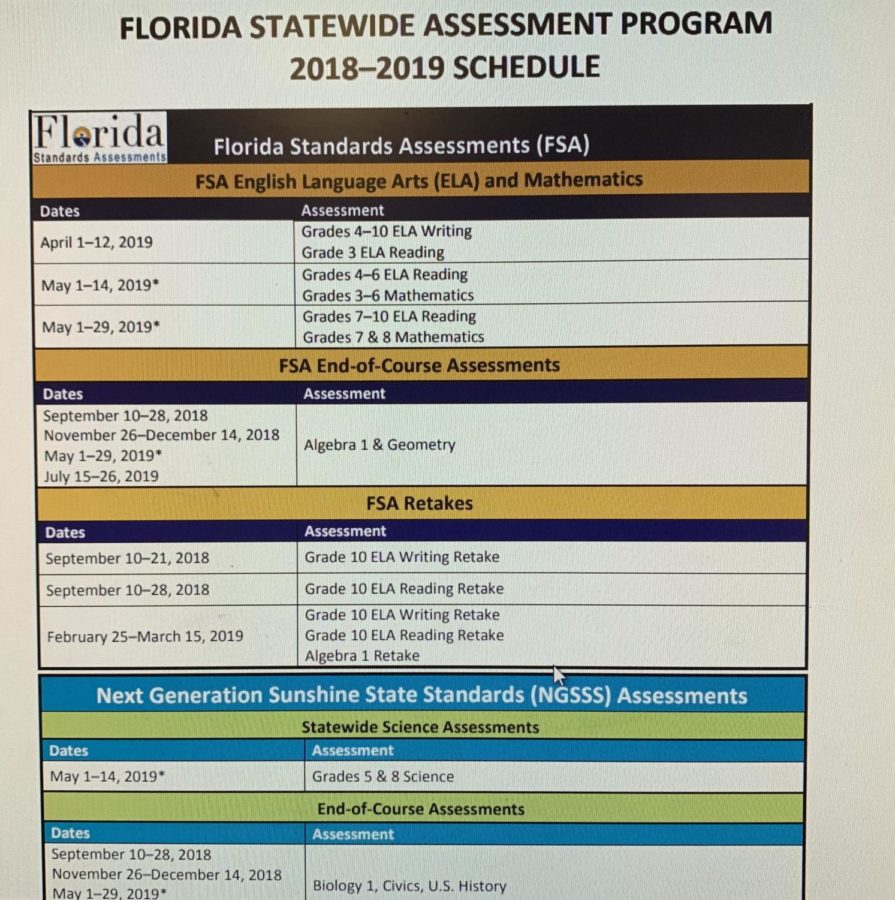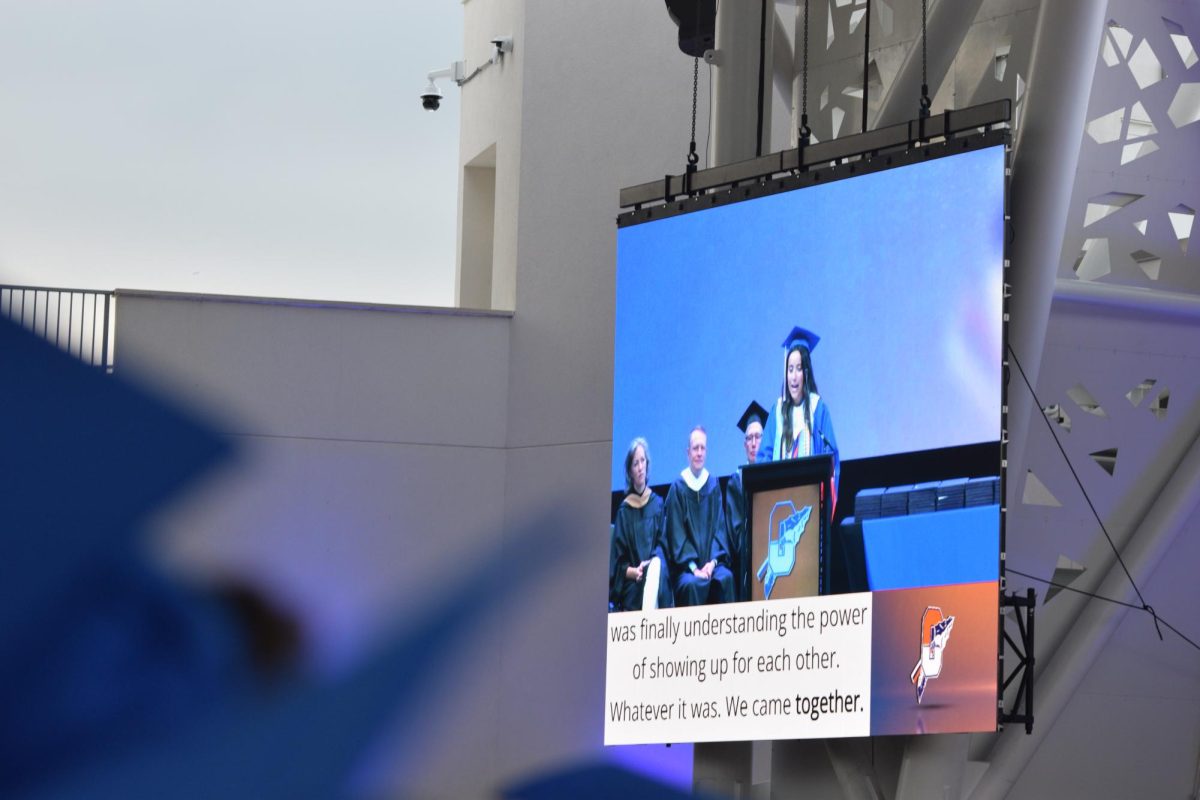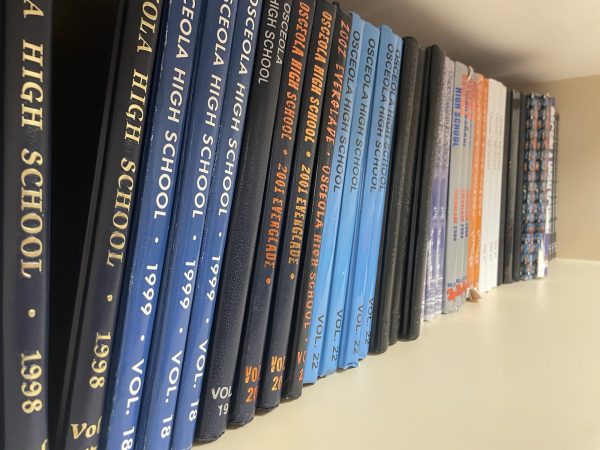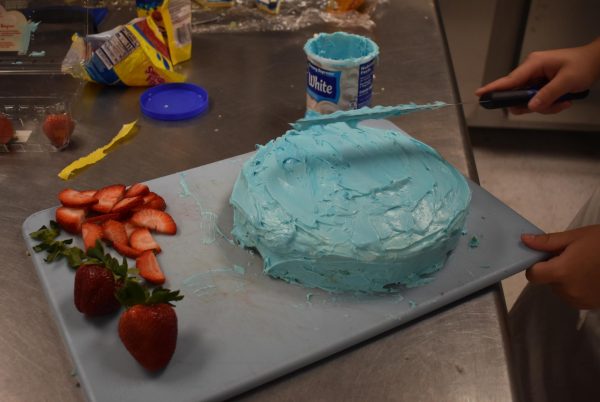Studious students start studying
May 6, 2019
Testing season for the FSAs and EOCs is coming up in the next few days. The FSAs and EOCs, “serve Florida students by measuring education gains and progress”, according to fsassessments.org. which means very soon everyone will be curious as to what the schedule is, so that they can plan what tests they’ll be exempting, which subjects to study which nights, and how to properly prepare for the tests they will be having that day.
The first week of May will be FSA reading, which will take place on the Thursday and Friday, ninth graders only will test these days. The following week will also be for FSA reading, but it will be for tenth graders, on Monday and Tuesday. In that same week, everyone who will be taking the Biology EOC will take it on Wednesday. The Thursday and Friday of that week will be the Geometry EOC. Algebra 1 students will be testing on the Monday and Tuesday of that following week. Shortly after Algebra 1, will be the US history EOC. The makeups for this test will be the next week. Any other make ups will be on the 16th and the 17th. If you would like to see the testing schedule more compact and organized, then look below.
5/2 – 5/3/2019 |
FSA Reading (9th) |
5/6 – 5/7/2019 |
FSA Reading (10th) |
5/8/2019 |
Biology EOC (all) |
5/9 – 5/10/2019 |
FSA EOC Geometry |
5/13 – 5/14/2019 |
FSA EOC Algebra 1 |
5/15/2019 |
US History EOC (make-ups 5/20) |
5/16 – 5/17/2019 |
Make- up Testing |
5/20/2019 |
US History EOC (for AP US history students) |
As the school year ends, end-of-the-year exams start. This means students have to begin studying and preparing for these tests. There are several different studying techniques that students use to get ready. Depending on the class and the type of test, the way to study can differ. According to Princeton Review, the steps to doing well on exams include:
“1. Make a finals game plan.
2. Start early.
3. Study in this order: a) definitely b) probably c) might be on the final
4. Give yourself more time to study for your toughest classes.
5. Form a study group.
6. Talk it out.
7. Get creative with study aids.
8. Study your notes.
9. Quiz yourself.
10. Make sleep a priority.
11. Take five [minute breaks].
12. Brain food is real.”
When studying for exams, it can seem very overwhelming, but by “[planning] out study sessions (for ALL exams), [it is easier to] get a better handle on how much work [there is],” (Princeton Review). Another way to make sure to be not only mentally prepared, but physically prepared is to get an adequate amount of sleep and do not pull all-nighters, take study breaks, and most importantly eat a balanced diet with plenty of water. Another way to make studying more engaging and interesting is by forming study groups with friends and finding different study techniques. Another way to get the most out of studying is to discover the best learning style. There are several different types of learning styles, which include, an auditory learner, visual learner or kinesthetic learner. An auditory learner prefers to learn by listening. Visual learners prefer to learn by seeing. Kinesthetic learners prefer to learn by doing. Each of these ways of learning require different techniques. Sajia Chowdhury, sophomore, said, “I feel fairly prepared for exams because I feel like my teachers have gone over the necessary material, but I am still going to be studying. I usually use the study guides that the teachers provide and flashcards to study for exams.”






